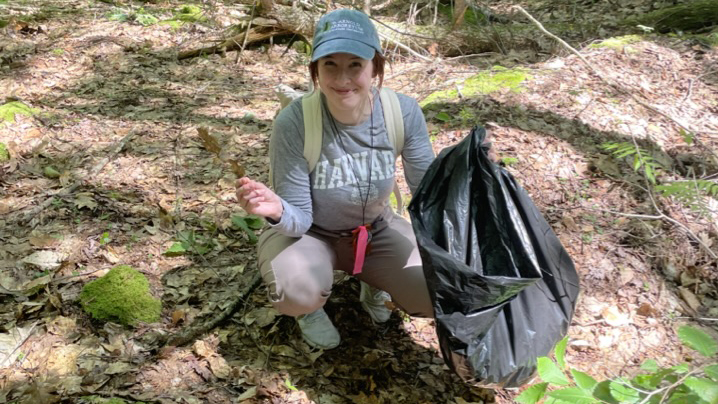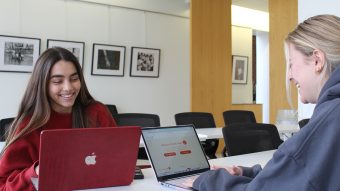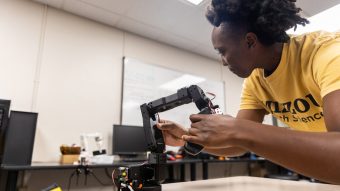
Aug. 14, 2023
Contact: Deidra Ashley, ashleyde@missouri.edu
Kathryn Vanden Hoek is a senior biochemistry major from St. Louis. This summer, she conducted research at Harvard — exploring the relationship between soil nutrients and fungi.
Read on for a Q&A with Vanden Hoek about her summer research experience.
Tell us about your research.
I was involved in a 10-week project focused on plant roots, fungi and their mutually beneficial relationship. Plants provide carbon to fungi, and fungi gather and provide nutrients to the plant that would have otherwise been inaccessible. Our project was aimed at figuring out the driver of that cycle: Are the soil nutrients driving the type of fungi that will associate, or do the fungi affect the soil nutrients?
This research is an important step in helping us create more accurate climate prediction models.
What were some of your roles and responsibilities?
Our team gathered data from trees across an entire forest in Massachusetts, and I got to help with everything from project design to analyzing data.
I spent most of my days running experiments or analyzing samples under a microscope. The internship was also great because it also allowed me to participate in reading discussions and career development opportunities with my peers.
What did you enjoy most about your project?
I loved the problem solving that was involved. There are many ways that you can tackle a research question, and trying to find the best approach was exciting. We actively changed our path as the project went on, and it was rewarding to see my decisions have a positive outcome.
I also enjoyed collecting samples from the forest. When you’re on the forest floor — digging through all the layers of leaf litter and soil — you really see how much we take for granted. There’s a lot happening at a small scale, and it’s cool to see so many different aspects of an ecosystem interacting.
What’s the biggest lesson you learned?
The biggest lesson I learned with this project was to think about your project timeline and estimate how long each portion will take. We didn’t expect microscopy to take as long as it did, which meant we didn’t have time to include all of the samples we had originally planned on including. It was frustrating at times, but I’m very glad I’ve had the opportunity to work on a short and strict deadline because it’s going to help me improve my time management skills for the future.
How does your experience at Mizzou contribute to your success in the internship?
Thanks to Mizzou, I was able to start getting research experience from the moment I stepped foot on campus. I have to thank Dr. Sarah Humfeld, the assistant director for the Office of Undergraduate Research, because she’s the reason I am where I am today. She helped me get my foot in the door of undergraduate research and has continued to help me out every step of the way.
Because of the support I received at Mizzou, I am now in the process of publishing my first paper, which I got to help lead with graduate student Shawn Thomas.
Meet more summer 2023 student researchers


